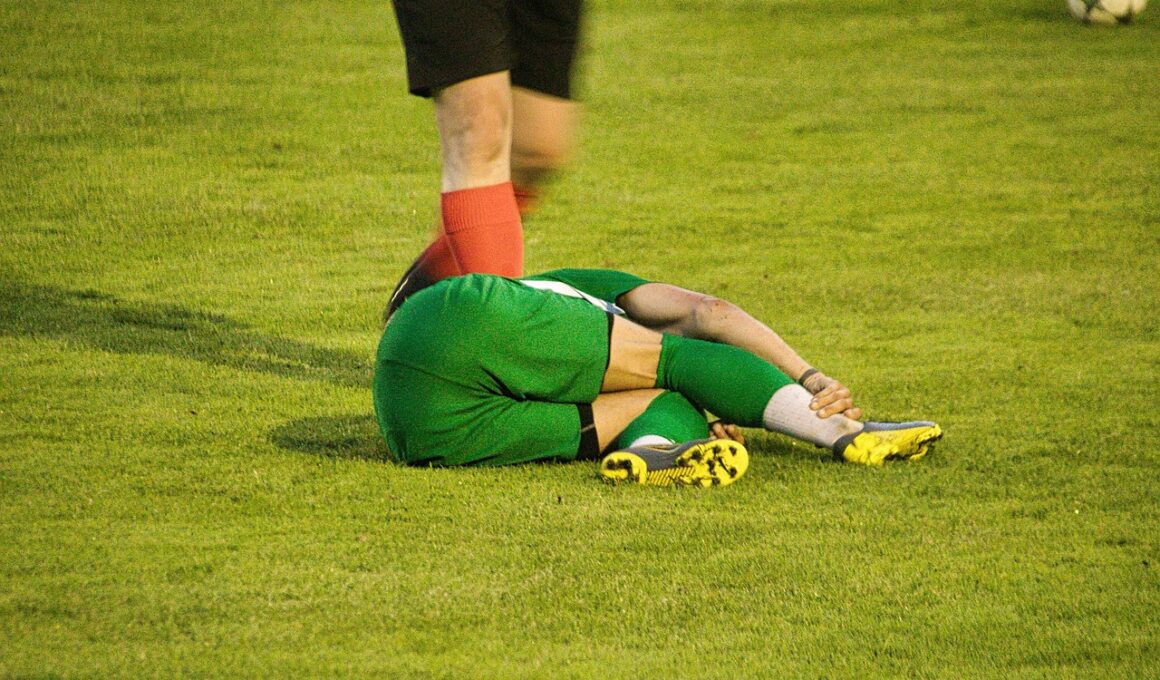Athlete Spotlight: Recovering from ACL Tears with Expert Care
In the world of sports, the significance of resilience cannot be overstated, particularly for athletes facing daunting injuries. One common injury that athletes might encounter is an ACL tear, which can dramatically affect their sporting careers and daily life. It is essential to understand the recovery process from such injuries to appreciate the athlete’s journey and the role of expert care. Recovery requires a well-planned approach that includes skilled medical professionals, rigorous physical rehabilitation, and dedicated patient participation. Athletes often share their personal experiences as a source of inspiration and education for others facing similar challenges. By highlighting these narratives, we can gain valuable insights into their emotions, struggles, and triumphs, which ultimately underline the importance of sports medicine in facilitating recovery. This article focuses on various testimonials and stories from athletes who have successfully navigated their journey of recovery after ACL tears, emphasizing the profound impact that expert medical care can have on their lives. From initial diagnosis to rehabilitation, the athlete’s story reveals the dedication required to return to their sport at peak performance.
Understanding ACL Tears and Their Impact
ACL injuries are prevalent among athletes, particularly in high-impact sports such as football, soccer, and basketball. These injuries can prevent individuals from participating in their sport, leading to feelings of frustration and loss. The anterior cruciate ligament, or ACL, plays a critical role in knee stability, and when it is torn, immediate consequences often include swelling, pain, and instability. To grasp the seriousness of this injury, it is vital to communicate with other athletes who have faced similar situations. They frequently speak about the uncertainty and fears that accompany their diagnosis. However, understanding the injury equips athletes with knowledge on the recovery process, which can ease anxiety and promote a positive outlook. The journey to recovery is rarely linear and often requires persistence and discipline. Expert sports medicine professionals provide not only medical interventions but also emotional support to help athletes cope with the mental and physical healing processes. This holistic approach showcases the transformative role that comprehensive care plays in facilitating recovery, enabling athletes to regain confidence and strength throughout their rehabilitation.
Through dedicated rehabilitation programs, patients experience gradual improvements that build up their confidence. Strengthening exercises are a crucial part of this rehabilitation journey, allowing athletes to gradually regain their strength following surgery. Many athletes emphasize the importance of structured rehabilitation routines, designed by knowledgeable professionals who understand individual needs. These tailored programs focus on strength building, mobility, and balance, all essential components in the rehabilitation process. Moreover, athletes often highlight the role of mental resilience and determination during recovery. While physical rehabilitation is key, the emotional aspects of returning after an injury can’t be ignored. Many testimonials reflect the struggles faced during periods of frustration and immeasurable progress. Support from teammates, coaches, and family can significantly affect an athlete’s motivation throughout their recovery. A strong support network can provide encouragement and positivity, helping them navigate the challenges that arise during rigorous training. Athletes often express their gratitude for those who stood by them during difficult times, underscoring the communal aspect of sports and recovery. Ultimately, these stories inspire others going through similar challenges, showcasing that persistence and the right support can lead to triumphant comebacks.
The Role of Expert Care in Recovery
Professional healthcare providers, including orthopedic surgeons and physical therapists, play a vital role in a successful recovery from ACL tears. Their expertise and guidance equip athletes with essential knowledge on injury management, rehabilitation protocols, and preventive measures against future injuries. Athletes often recount their experiences with these professionals, emphasizing how integral they were throughout their recovery journey. Most express relief in knowing they’re under the care of specialists who understand their sport and the physical demands it imposes. This bespoke approach enables athletes to recover effectively and return to their respective sports when they’re physically and mentally ready. The importance of open communication with healthcare providers is a key takeaway from these stories, as feeling heard often leads to better outcomes. Many athletes also mention the value of regular evaluations and adjustments in rehabilitation plans, allowing them to adapt based on their recovery speed. Such ongoing support boosts athletes’ morale and facilitates positive recovery experiences. These athletes’ narratives highlight how vital expert care is in navigating the rollercoaster of emotions and challenges encountered during rehabilitation from ACL injuries.
Furthermore, patient stories often illustrate the psychological barriers athletes face as they embark on their recovery journeys. Anxiety and fear of reinjuring the knee can hinder progress and create self-doubt. Engaging in mental performance coaching is one possible solution, where athletes learn coping strategies and mental conditioning to build confidence. Many emphasize that mental readiness is as crucial as physical rehabilitation, underscoring the need to address both aspects. Involving sports psychologists can aid athletes in overcoming mental hurdles by implementing mindfulness techniques, visualization, and relaxation strategies. Listening to athlete testimonials often provides reassurance, as they share how navigating fears can enhance their resilience. Physical therapists frequently collaborate with sports psychologists to create an inclusive recovery program, ensuring comprehensive care that addresses both physical and mental health. In many narratives, this partnership is portrayed as a turning point during their recovery process. Athletes report significant improvements in confidence, which translates to better physical performance and quicker return to sports. These stories also serve to reinforce the growing recognition of mental health in sports medicine, making them significant teaching tools for other aspiring athletes experiencing similar journeys.
Triumphant Returns to Sports
After navigating the complexities of recovery from an ACL tear, athletes often express immense joy and relief upon returning to their sport. This moment serves as the culmination of hard work, dedication, and the support received from medical professionals, family, and friends. Many former patients recount their feelings as they step back onto the field or court, a blend of excitement and nervousness. It’s transformative to witness the resilience of athletes who emerge stronger and more determined after rehabilitation. Personal stories often emphasize their journey through this emotional landscape, illustrating how athletes rediscover their competitive spirit amid uncertainty. Recognition of milestones—such as completing rehabilitation or achieving specific performance benchmarks—serves as motivation along the path to recovery. Athletes frequently express heartfelt gratitude for their support network and the expert care they received during their challenging times. As they share their joyful experience of competing again after injury, they inspire others, emphasizing a message of hope and persistence. These testimonies highlight the importance of believing in one’s abilities, and through their challenges, these athletes can serve as beacons of strength for those in the same position.
In conclusion, the journey of recovering from an ACL tear is profound and multifaceted. Athlete testimonials provide unique insights into the physical and emotional challenges faced during recovery. Emphasizing the crucial role of expert care, tailored rehabilitation programs, and mental health support, these narratives instill a sense of hope in those undergoing similar experiences. By sharing their stories, these athletes shed light on the transformative journey from diagnosis to competing once again, creating a powerful narrative of resilience and determination. This kind of storytelling not only serves to inspire others but also fosters a deeper understanding of the recovery process in sports medicine. As public awareness continues to grow around the value of mental and physical rehabilitation, more athletes will likely benefit from comprehensive care. The personal experiences shared by these athletes can empower others who may feel isolated in their struggles, uniting them through shared understanding and support. Ultimately, fostering a community around these experiences can lead to ongoing enhancements in treatment strategies, further solidifying the truth that recovery is indeed possible, making sports medicine an invaluable component of athletic performance.
Moreover, many athletes emphasize the role they play in advocating for their wellness following an ACL injury. As they engage with their recovery process, they equip themselves with knowledge about injury prevention techniques that prove beneficial when returning to sports. This proactive approach ensures they remain vigilant against potential re-injuries, allowing them to compete with renewed confidence. Athletes often express their satisfaction in sharing their knowledge with younger athletes and peers, hoping to guide them through their recovery experiences. By recounting their journeys, they contribute to a greater awareness of the healing process and the importance of seeking expert care. Many express their desire to break the stigma surrounding injuries, emphasizing how addressing them openly can lead to better outcomes. This sense of responsibility towards the sports community further strengthens their resolve to create positive change. Through mentorship, sharing techniques, and fostering an environment of support, recovering athletes can help others navigate their paths to healing. It’s this spirit of camaraderie that embodies the heart of sports, painting both a picture of struggle and triumph in the face of adversity.


